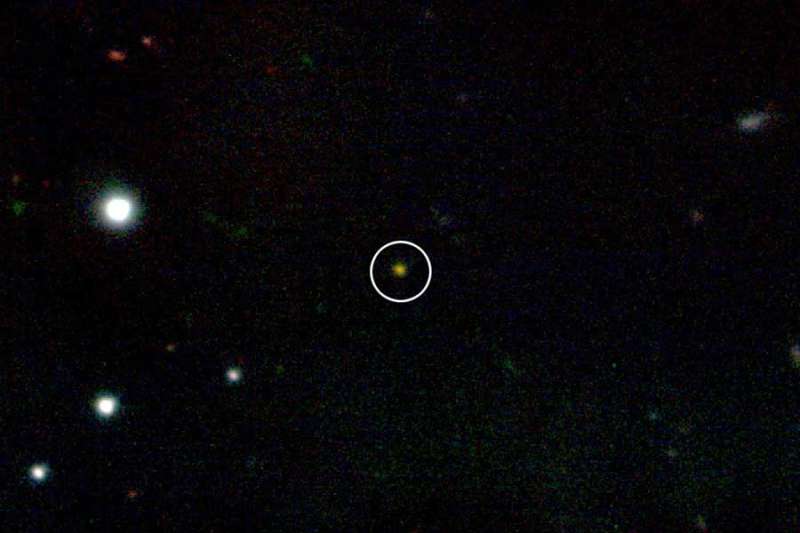
|
Credit & Copyright: Gemini Observatory /
NSF /
AURA,
D. Fox &
A. Cucchiara
(Penn State U.), and
E. Berger
(Harvard Univ.)
Explanation:
An explosion so powerful it was seen clear across the visible universe was recorded
in gamma-radiation last week by NASA's orbiting
Swift Observatory.
Farther than any known
galaxy,
quasar, or optical
supernova, the
gamma-ray burst recorded
last week was clocked at
redshift 8.2, making it the farthest explosion of any type
yet detected.
Occurring only 630 million years after the
Big Bang,
GRB 090423 detonated so early that astronomers had no direct evidence that anything
explodable even existed back then.
The faint infrared afterglow of
GRB 090423 was recovered by large ground telescopes within minutes of being
discovered.
The afterglow is circled in the above picture taken by the large
Gemini North Telescope in
Hawaii,
USA.
An exciting possibility is that this
gamma-ray burst occurred
in one of the very
first generation of stars and
announced the birth of an early
black hole.
Surely,
GRB 090423
provides unique data from a relatively
unexplored epoch in our universe and a distant beacon from which the intervening
universe can be studied.
|
January February March April May June July August September October November December |
| ||||||||||||||||||||||||||||||||||||||||||||||||
NASA Web Site Statements, Warnings, and Disclaimers
NASA Official: Jay Norris. Specific rights apply.
A service of: LHEA at NASA / GSFC
& Michigan Tech. U.
Based on Astronomy Picture
Of the Day
Publications with keywords: gamma-ray burst - redshift - early universe
Publications with words: gamma-ray burst - redshift - early universe
See also:
